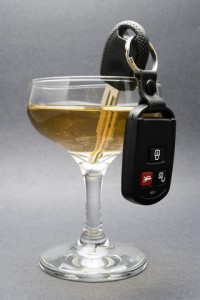Sign Up Today!
-
Latest News
- Blick Law Firm Works Closely with Tampa’s Chiropractic and Acupuncture Clinic
- Blick Law Firm Brings Legal Expertise and Christian Values to Tampa
- What can a personal injury attorney do for you?
- The Importance of a Real Estate Attorney in a New Transaction
- Over 150 New Florida Laws Take Effect this Month
- Law Change Protects Florida Patients From Balance Billing
- Fatal Alligator Attack at Disney World Orlando Could Mean Legal Trouble
- Florida Gun Laws Under Fire After Orlando Attacks
- Prospect of Medical Marijuana in Florida Creates Buzz
- Florida’s Death Penalty System Subject to Further Questioning
- Summer Driving Safety Tips
- Florida Supreme Court Votes to Maintain Reasonableness in Workers’ Compensation Law
Tags
abogado cristiano abogado de lesiones personales abogado en tampa abogados abogados en tampa abogados real estate abogados tampa accident attorney accident attorneys attorney for the defense attorneys in tampa auto accident bancarotta en tampa bankruptcy attorney blick law firm carrollwood carrollwood attorney carrollwood businesses carrollwood law firm carrollwood real estate christian attorney christian law association christian law firm christian lawyer christian lawyers christian lawyers association christian lawyer tampa driving under the influence helping the hurting michael c blickensderfer military lawyer military lawyers minute with mike personal injury personal injury attorney personal injury attorneys personal injury lawyer personal injury lawyers real estate law tampa attorney tampa law firm tampa personal injury attorney tampa real estate attorney veterans veterans lawyer
Tag Archives: tampa dui attorney
DUI | DUI Conviction | Criminal Attorneys Tampa
 In Florida, Law Enforcement Officers pull over drivers for numerous reasons, driving under the influence (DUI) being a common arrest. Many Florida drivers are unaware of the definition of a DUI, the consequences that result from such actions, as well as what to do if pulled over for suspicion of DUI.
In Florida, Law Enforcement Officers pull over drivers for numerous reasons, driving under the influence (DUI) being a common arrest. Many Florida drivers are unaware of the definition of a DUI, the consequences that result from such actions, as well as what to do if pulled over for suspicion of DUI.
DUI
DUI, or Driving Under the Influence, generally refers to a person who has physical control of a vehicle while that person’s normal faculties are impaired by:
- Any type of drug
- Alcohol
- Illicit drugs
- Prescription medication
Therefore, if you are under the influence of drugs other than alcohol and are in actual physical control of a vehicle, you can still potentially be charged with a DUI.
In Florida, a blood alcohol level of .08 or more constitutes alcohol impairment beyond the legal limit. However, a police officer may still arrest you for a lower blood alcohol concentration (BAC) if they suspect that your normal faculties are impaired while operating a motor vehicle. Having a BAC under a .08 will increase your chances of overcoming the DUI conviction, but you may still be arrested and endure several hassles that go along with combating a DUI charge.
Police officers look for many physical signs of impairment once pulled over. Initially the driver may only be pulled over for a traffic offense, even minor ones; and then an officer will initiate immediate conversation to determine the potential impairment of the driver, which may result in a DUI conviction.
Common signs that police will be looking for to suspect an impaired driver: the ability to maintain eye contact, slurred speech, the smell of alcohol on a driver’s breath, or bloodshot eyes.
While it is your right to not answer any questions without a lawyer present, not doing so will certainly raise the officer’s suspicion and they will likely investigate further. It is wise to answer questions vaguely and avoid delving into specifics, including any amount of alcohol you have consumed, or that you just left a party, bar, or football game.
If the Police are suspicious, they will tell you to exit the vehicle, and you must. However, you may refuse to submit to any sobriety tests conducted. Even if you think you can pass the sobriety exercises, it is likely in your best interest to politely refuse because the officer determines whether you passed based solely on their own judgment. Know that you always have the right to contact an attorney before you submit to any test.
DUI Conviction
Florida drivers that are pulled over as a result of driving under the influences whether by alcohol or from a substance may result in the following consequences:
- License Suspension
- Drastic Insurance Increases; especially when required to obtain FR-44 insurance coverage
- Complications with Employment; both present and future
- Driving Restrictions that require additional costs such as an Interlock Device installed in your vehicle for a period of 6 months, 1 year, or even 2 years, depending on your situation
- Probation
- Legal Fees and Court Costs
These consequences contribute to a multitude of difficulties that one faces when battling a DUI charge. It is important to fully understand and appreciate the severity of possible consequences associated with DUI, and always take all possible steps to avoid Driving Under the Influence.
Criminal Attorneys Tampa
If you are charged with DUI, it is important to seek legal counsel immediately from a criminal Tampa attorney! Call Blick Law Firm today at 813-931-0840. Make an appointment for a free 15 minute consultation with attorney Michael Blickensderfer to determine what your options are moving forward.
DUI conviction remains on your record for life!
 No one can drink alcohol and still drive safely. Drinking and driving causes accidents and deaths every day and therefore the penalties in Florida are tough.
No one can drink alcohol and still drive safely. Drinking and driving causes accidents and deaths every day and therefore the penalties in Florida are tough.
If you drink and drive the result may be:
- Jail time
- Loss of your Florida drivers’ license
- Heavy fines
- Increased auto insurance rates
A conviction will stay on your Florida driving record for life.
If it is going to stay on your record, why hire a DUI criminal attorney? While the conviction can not be dismissed, a DUI attorney advocates on behalf of the client for a better outcome, which will impact life as it relates to school, work, insurance rates, etc.
Florida has a Zero Tolerance law for drivers under 21. This means that any driver under 21 that is stopped by law enforcement and has a blood alcohol level of .02 or higher will automatically have their Florida drivers’ license suspended for 6 months. The .02 limit really means that you cannot have a single drink and then drive.
For drivers over 21 the legal limit in Florida is .08. Regardless of your age be aware that drinking and driving is a serious offense. Below summarizes the penalties in the state of Florida for a first offense DUI.
Florida Penalties for DUI First Conviction:
- Fine – $250 to $500
- Community Service – 50 Hours
- Probation – Not more than 1 Year
- Imprisonment – Not more than 6 Months
- Imprisonment with BAL of .08 or higher with a minor in the vehicle, not more than 9 months
- License Revocation – Minimum of 180 days
- DUI School – 12 Hours
For more information regarding Florida DUI conviction’s penalties and seeking legal representation to better the outcome of your situation, contact Blick Law Firm today! 813-931-0840.
Posted in Blog, DUI
Tagged abogados tampa, blick law firm, carrollwood, carrollwood attorney, christian attorney, christian law firm, christian lawyer, criminal defense attorneys, criminal defense lawyer, criminal defense lawyers, dui attorney, DUI attorneys, dui defense attorneys, dui first offense, dui in florida, dui penalties in florida, florida dui attorney, penalties for dui, penalties for dui in florida, punishment for dui, tampa christian lawyer, tampa dui attorney, tampa dui attorneys
Leave a comment
Tampa Bay DUI Check Points
 Tampa Bay deputies and police officers are dedicated to values of integrity, professionalism and community involvement. As a result of their commitment the county’s overall crime rate dropped in 2008, 2009, 2010 and 2011. Blick Law Firm assists efforts by posting DUI checkpoints to help enforce safety amongst the community.
Tampa Bay deputies and police officers are dedicated to values of integrity, professionalism and community involvement. As a result of their commitment the county’s overall crime rate dropped in 2008, 2009, 2010 and 2011. Blick Law Firm assists efforts by posting DUI checkpoints to help enforce safety amongst the community.
What are DUI checkpoints? DUI checkpoints consist of police roadblocks at busy thoroughfares at which motorists are randomly selected for screening. These stops help keep all parties safe so they can continue on with their life, without any tragic or fatal interruptions.
Sobriety checkpoints reduce alcohol-related crashes by about 20 percent, according to a U.S. Centers for Disease Control report combining the results of 23 scientific studies.
Although they tend to be controversial, DUI checkpoints have survived most legal challenges; even in some states where statutes require an officer to have reasonable suspicion of intoxication before initiating a traffic stop. The U.S. Supreme Court ruled in 1990 that sobriety checkpoints are legal under federal law (Michigan Dept. of State Police v. Sitz), leaving it up to the individual states to decide.
Should you find yourself unable to drive because of intoxication, please call a friend, cab driver or ask the bartender to call someone for you. Do not drink and drive.
If you have been arrested for a DUI or other related incident, call Blick Law Firm today to assist you and seek legal representation you deserve! Think quick, call Blick! 813-931-0840
Posted in Blog, DUI
Tagged blick law firm, carrollwood attorney, carrollwood lawyer, carrollwood tampa, dui check point, dui checkpoint, dui checkpoints, lawyers in tampa, michael c blickensderfer, sheriff office, sobriety check points, tampa attorney, tampa bay area traffic, tampa dui, tampa dui attorney, tampa dui checkpoints, tampa dui lawyer, traffic tampa bay
Leave a comment
Can you get a DUI Without Driving?
 According to article, Can you get a DUI without driving? Though it seems an oxymoron, the answer is yes. You’d be surprised how many drivers don’t realize it could happen.
According to article, Can you get a DUI without driving? Though it seems an oxymoron, the answer is yes. You’d be surprised how many drivers don’t realize it could happen.
Consider the Florida man whose roommate objected to his choice of late-night music, so he took his tunes outside to listen to in his car. That turned out to be a big mistake. He was arrested on suspicion of DUI after deputies knocked at his window and decided to conduct a field sobriety test, which he failed.
Or the case of a North Carolina woman who was arrested at a fast-food joint after she was found asleep behind the wheel with the engine running. Or the New Jersey camper who was found passed out in the back of his pickup at a campsite and charged with DUI. Or farther afield, the Alaska man who was stuck in a snowdrift and found to have a blood-alcohol ratio more than four times the legal limit, or the Canadian man who was seen pushing his vehicle by deputies and subsequently failed a field sobriety test.
Tales abound across America of drivers who were found asleep in their vehicles, usually incapacitated, and were stunned to find a sheriff’s deputy or patrol officer knocking at their door. Usually when confronted with a dazed driver who may quickly become belligerent, a field sobriety test is pretty much automatic. And then, often, it’s into handcuffs and a trip to the calaboose. Some drivers, even then, don’t realize why they’ve been busted.
“Actual Physical Control”
Florida lawyer David Haenel has defended many “DUI without driving” cases, including the man with the loud music and the complaining roommate, and says it’s a common occurrence. A former state DUI prosecutor of the year who switched sides and now runs the site fightyourdui.com, Haenel says that drivers usually are convicted by the legal precept of “actual physical control” of any vehicle.
In the Florida case, the man had his keys in the ignition to allow his music to play. Some drivers found impaired in their vehicles have turned on their car for heat or AC, Haenel explains. Usually, such drivers are found asleep, but as their keys are in the ignition or on their person, they are found to have “actual physical control” in the eyes of the law.
“A person may be sitting in a vehicle and the keys may be in the ignition. They may have no intention of driving the vehicle, but the car is on,” he says. Haenel says such laws are “uniform” across the nation.
Actual physical control, by definition, means the defendant must physically be in or on the vehicle and have the capability to operate the vehicle, regardless of if he or she operated the vehicle at the time.
Haenel says often drivers have no intention of driving, that they’ve either left a party or drinking establishment, realized that they are impaired and decided to sleep in their cars. Usually they’re startled by an officer, who often will realize the driver is impaired and administer a field sobriety test.
If the driver refuses a breath or blood test, the same rules apply as for a regular DUI test. Often, a driver will lose their license for a period and be expected to attend DUI classes. A heavy fine is almost always levied, and a driver will face a hike in their auto insurance.
Haenel says if a driver has been proven to have actual physical control of a vehicle, he will often try to get surveillance video from the surrounding area in a bid to prove that a driver had no intention of driving, that they had been parked in the vehicle for several hours, which could show the driver had no intent to drive.
A simple way to avoid such charges, of course, is to not drink to begin with, or arrange alternate transportation or a designated driver. But Haenel says the best way to avoid an instance of DUI without driving is to “get rid of the car keys.”
“They should put them underneath or on the passenger side tire, if they have a release for their trunk, that would be ideal. But most people don’t think of that until they’re in handcuffs.”
Posted in Blog, Criminal Law, DUI
Tagged can you get a DUI without driving, DUI attorneys, tampa dui attorney
1 Comment
Drunken driving, traffic crime deportations way up
 WASHINGTON (AP) — Huge increases in deportations of people after they were arrested for breaking traffic or immigration laws or driving drunk helped the Obama administration set a record last year for the number of criminal immigrants forced to leave the country, documents show.
WASHINGTON (AP) — Huge increases in deportations of people after they were arrested for breaking traffic or immigration laws or driving drunk helped the Obama administration set a record last year for the number of criminal immigrants forced to leave the country, documents show.
The U.S. deported nearly 393,000 people in the fiscal year that ended Sept. 30, half of whom were considered criminals. Of those, 27,635 had been arrested for drunken driving, more than double the 10,851 deported after drunken driving arrests in 2008, the last full year of the Bush administration, according to Immigration and Customs Enforcement data provided to The Associated Press.
An additional 13,028 were deported last year after being arrested on less serious traffic law violations, nearly three times the 4,527 traffic offenders deported two years earlier, according to the data.
The spike in the numbers of people deported for traffic offenses as well as a 78 percent increase in people deported for immigration-related offenses renewed skepticism about the administration’s claims that it is focusing on the most dangerous criminals.
President Barack Obama regularly says his administration is enforcing immigration laws more wisely than his predecessor by focusing on arresting the “worst of the worst.” He promised in his 2008 presidential campaign to focus immigration enforcement on dangerous criminals. As recently as May 10, Obama said in a speech in El Paso, Texas, that his administration was focused on violent offenders and not families or “folks who are looking to scrape together an income.”
Posted in Blog, Criminal Law, DUI
Tagged immigration laws, tampa criminal lawyers, tampa dui attorney, tampa traffic attorney
Leave a comment

















 According to the TBT this weekend a recent study found although
According to the TBT this weekend a recent study found although